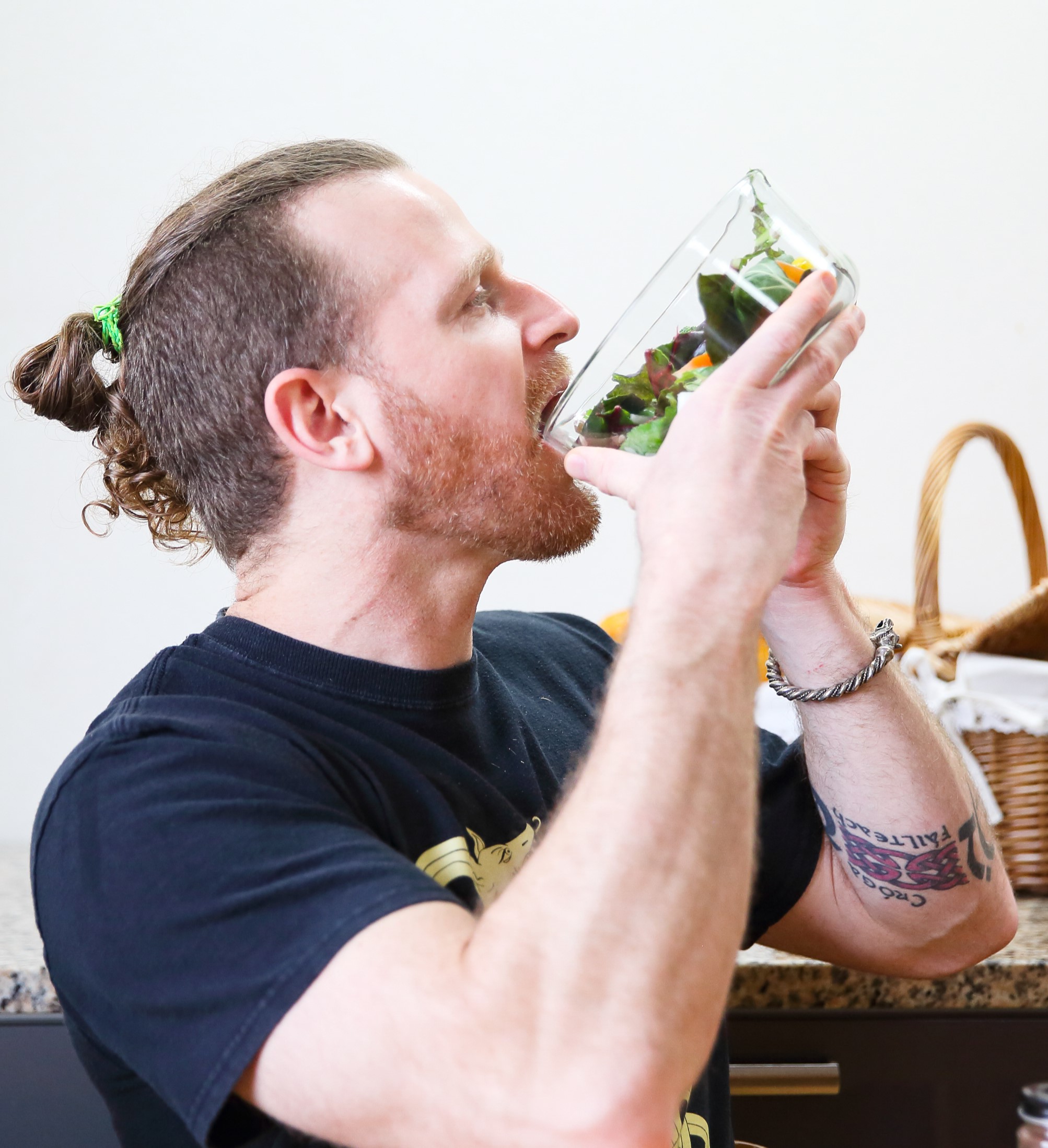TL;DR: You are what you eat.

I mean….. that sums it up right there. You don’t have to read any further, but if you want to know the nitty gritty details, then please continue.
It’s true. If you’re eating nothing but chips, and Jell-O and drinking coke, and super sugary lattes, you’re going to perform like a potato chip under pressure. You'll feel as wobbly as a bowl of Jell-O, and you’re going to crash and burn exactly like that mid-morning caffeine crash. That last point isn’t just a metaphor. That literally happens. If you’re eating high quality proteins, your daily share of complex carbohydrates, and healthy fats, you’re going to perform and live like those nutrient dense, lean, powerful foods you’re putting in your body.
You can’t outperform a bad diet. You might be able to in the short term. When you’re young and your metabolism is through the roof, you might be able to process those bad carbs and trans fats at greater efficiency, but that catches up with you. And faster than you might think. Maybe a vanilla caramel macchiato gives you that boost to blow through some extra reps you usually don’t have in the tank. However, you’re going to burn out faster. You’re also more tired after your workouts and your rep quality is lower than if you were on an even keel.
The other thing about exercise is that everyone loves different exercises. You’ve got your runners, your hikers, your body builders, your yogis, weekend basketball players, cyclists, power walkers, and 80’s Richard Simmons super fans. We love different stuff and we all should be doing the exercises that we love…. As long as it’s not 3 sets of burger curls at 20 reps per set.
No matter what you’re into, prioritizing your diet will help you perform better and improve your quality of life. Even if you don’t like exercise or can’t because of injury, you CAN out eat a lack of exercise.
That’s what Food Forward Fitness is. We’re learning how to build better eating habits and better relationships with our food. It’s not as easy it sounds. We’re send mixed messages at school. Health class tells us to eat a balanced diet, then the hallways are loaded with Coca-Cola vending machines and the cafeteria loads us up with fries. Grocery stores often have junk food significantly cheaper than healthy whole foods. (Especially nowadays! Jeezus!) Diet culture promotes food guilt, body shaming and yo-yo dieting.
Together we learn how to navigate the mixed messages, cravings, and unnecessary guilt to build a healthy life-style that supports the exercise programme you want to do.
The good news is that most people eat a lot healthier than they assume they do. This is also a product of the mix messages I talked about earlier. Our views of what is and isn’t healthy get skewed and we tend to think of things in black or white, as opposed to the spectrum of nutrition that applies to pretty much everything we consume.
Every food has its own benefits and drawbacks that helps all of us in a bio-individual manner. Learning how to read the signals our body sends us is critical to building a healthier diet. A perfect example, dairy is often portrayed as a universal “bad guy” by the online diet world, however for many people it’s a critical source of calcium and vitamin D. Some people are lactose intolerant and others have absolutely no problem processing dairy. Most people, however, are somewhere in the middle; It provides some vital nutrients whilst causing minor inflammation in the digestive system and possibly raising cholesterol levels. Most foods are like this. The point is finding how your body reacts to foods and what helps you perform better.
Inflammation is the key to the whole process. Everything we consume either promotes or fights inflammation somewhere in our bodies. Inflammation on our skin or gingivitis is easy because it’s visible and it’s often painful or itchy or some other symptom. Inflammation inside our bodies is more difficult to suss out because we can’t visibly see it, but it does manifest in noticeable ways. If you’ve got a lot of gas, bloating or IBS, persistent joint pain, brain fog, chronic fatigue, you can bet you’re suffering from internal inflammation.
Much of this inflammation is caused by food and dietary triggers. Some triggers are small like food sensitivity. Others can be more severe like poor dietary choices. While we’re taught to eat healthy and stay hydrated, we’re often not shown just how effective proper choices can be for our bodies, both inside and out. By making the right choices, we can rid ourselves of most of this inflammation. Again, while there are some foods that reduce inflammation for most everyone (turmeric, apple cider vinegar, and ginger), we’re all different and have different sensitivities, so ultimately, it’s more about listening to our bodies and learning how to pick the foods that make us feel the best.
You’ll hear a lot of fitness experts on Instagram claim that they feel better at 38 than they did at 28. They’re not lying. Okay…. They’re not setting the league home run record at 38, but if you’re eating the right foods, there’s no reason why you shouldn’t feel better as you get older. The athletes who stick around the longest understand this.
With Food Forward Fitness, I’m here to help you sort all this out and make those correct decisions. If you think you’re ready for a change, check out one of my programs, and/or sign-up for your free health consultation and let’s get you moving in the right direction.
Thank you for your time.

